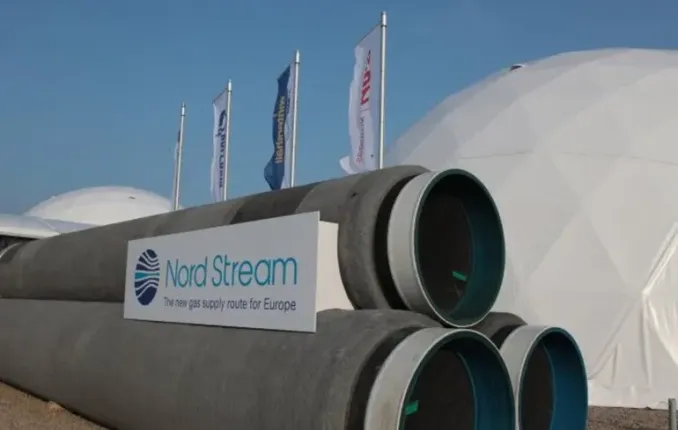Merkel and German government seek to block Nord Stream resumption: threat to reopen Russian gas pipelines

Discussions are ongoing in Germany on possible measures to prevent any attempts to resume the Nord Stream gas pipelines, which connect the country with Russia but remain under threat due to political and economic disagreements. Berlin's city authorities, in particular Mayor Frank-Marc Merz, are closely examining the possibilities of using legislative mechanisms to prevent a return to energy dependence on Moscow, which historically had a huge impact on the German energy sector. Energy ties with Russia have in the past actively determined Berlin's foreign policy: more than half of its gas was supplied via the Nord Stream pipelines. However, in the context of Russia's aggression against Ukraine and sanctions restrictions, the German government has declared a complete rejection of Russian fossil fuels, in particular by citizens and businesses. However, the issue of the restoration of gas pipelines has once again called this position into question. According to the Financial Times, amid reports of Russian and American businessmen's intentions to restore the pipelines to operation, Merkel's government has intensified diplomatic negotiations with representatives of the European Union and Ukrainian colleagues in order to develop mechanisms to deter such initiatives. Moreover, unlike other infrastructure facilities, the German state does not have direct control over the four Nord Stream pipes, as they belong to the Swiss company Nord Stream AG, which in turn is a foreign structure with all property rights outside the European space. The German Ministry of Economics reported that they are actively considering the possibility of amending the legislation on investment screening to prevent changes in the ownership of Nord Stream AG. This is very important, because today, according to current regulations, the government does not have sufficient leverage over these assets located abroad. If the pipelines are put back into operation, they will need to undergo technical certification, but the legal blocking of such processes is not currently directly provided for by law. In parallel, a discussion has been raised in the country about the possibility of relaunching the Nord Stream 2 pipeline or the other three lines of the Nord Stream. American investor Steven Lynch, who believes that Europe will eventually return to Russian gas, has already met with representatives of the German ministry to present his proposals for using at least one of the undamaged pipelines to meet the needs of the energy market. According to him, even one operating gas pipeline is able to provide a sufficient amount of resource, and nothing prevents us from doing without repairing the damaged parts. At the same time, official Berlin categorically emphasizes its commitment to the policy of gradually withdrawing from Russian energy resources within the framework of the EU sanctions package. Chancellor Olaf Scholz and Economy Minister Robert Gaby emphasize that Germany has already stopped purchasing Russian gas through gas pipelines, and the supply of Russian liquefied gas to German terminals has also been suspended. The country is actively discussing the idea of gradually reducing its dependence on fossil fuels, while increasing the development of alternative energy sources and terminals for importing LNG. On the world stage, the situation with the sanctions regime remains unresolved: the European Council has not yet adopted the 18th package of sanctions against Russia for its military actions in Ukraine. EU leaders have agreed to extend the previous measures for another six months, but the issue of introducing new restrictions remains open due to the resistance of some countries, in particular Slovakia. The solution to this problem is postponed, and discussions are essentially continuing at the level of diplomats and ambassadors. Thus, Germany and the European Union are currently in a difficult balance between the desire to ensure energy security and the political necessity to dismantle dependence on Russian resources, while actively seeking ways to legally and legislatively block any attempts to return Russian gas pipelines to operation. At the same time, the question of Europe's future energy sovereignty remains open and requires comprehensive solutions in the coming months.

